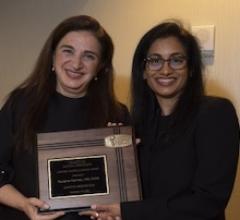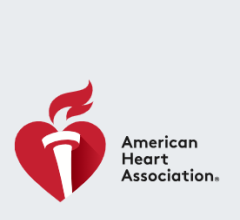
November 25, 2017 — Drinking coffee may be associated with a decreased risk of developing heart failure or having stroke, according to preliminary research presented at the 2017 American Heart Association (AHA) Scientific Sessions.
Researchers used machine learning to analyze data from the long-running Framingham Heart Study, which includes information about what people eat and their cardiovascular health. They found that drinking coffee was associated with decreased risk of developing heart failure by 7 percent and stroke by 8 percent with every additional cup of coffee consumed per week compared with non-coffee drinkers. It is important to note that this type of study design demonstrates an observed association, but does not prove cause and effect.
Machine learning, works by finding associations within data, much in the same way that online shopping sites predict products you may like based on your shopping history, and is one type of big data analysis. To ensure the validity of their results and determine direction of risk, the researchers further investigated the machine learning results using traditional analysis in two studies with similar sets of data - the Cardiovascular Heart Study and the Atherosclerosis Risk In Communities Study. The association between drinking coffee and a decreased risk of heart failure and stroke was consistently noted in all three studies.
While many risk factors for heart failure and stroke are well known, the researchers believe it is likely that there are as-yet unidentified risk factors. “Our findings suggest that machine learning could help us identify additional factors to improve existing risk assessment models. The risk assessment tools we currently use for predicting whether someone might develop heart disease, particularly heart failure or stroke, are very good but they are not 100 percent accurate,” said Laura M. Stevens, B.S., first author of the study and a doctoral student at the University of Colorado School of Medicine in Aurora, Colorado and Data Scientist for the Precision Medicine Institute at the American Heart Association in Dallas, Texas..
Another potential risk factor identified by machine-learning analysis was red-meat consumption, although the association between red meat consumption and heart failure or stroke was less clear. Eating red meat was associated with decreased risk of heart failure and stroke in the Framingham Heart Study but validating the finding in comparable studies is more challenging due to differences in the definitions of red meat between studies. Further investigation to better determine how red meat consumption affects risk for heart failure and stroke is ongoing.
The researchers also built a predictive model using known risk factors from the Framingham Risk Score such as blood pressure, age and other patient characteristics associated with cardiovascular disease. “By including coffee in the model, the prediction accuracy increased by 4 percent. Machine learning may a useful addition to the way we look at data and help us find new ways to lower the risk of heart failure and strokes,” said David Kao, M.D., senior author of the study and an assistant professor at the University of Colorado School of Medicine in Aurora, Colorado.
The American Heart Association suggest limiting red meat, which is high in saturated fat, as part of a healthy dietary pattern that should emphasize, fruit, vegetables, whole grains, low-fat dairy products, poultry and fish.
Co-author is Carsten Görg, Ph.D. Author disclosures are on the abstract.
The American Heart Association and the University of Colorado School of Medicine funded the study.
Links to other AHA 2017 Late-breaking Trials
For more information: heart.org


 November 14, 2025
November 14, 2025 









